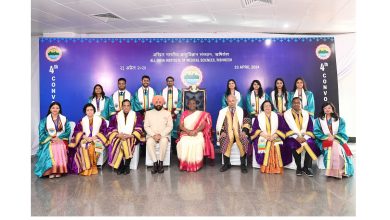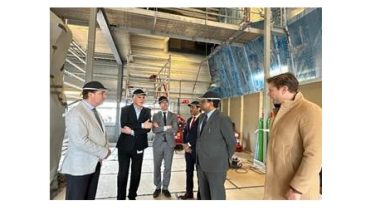Wearables sleep tech devices to witness 16 per cent growth rate through 2026: Global Market Insights

Offers significant relief for insomniac patients
An article from Global Market Insights projected that the sleep tech devices market size, which exceeded $10.9 billion in 2019, is poised to achieve over 16.6 per cent CAGR between 2020 and 2026. Rising awareness towards wearable and non-wearable devices is anticipated to boost the market expansion. Active companies in the markets this week include Hapbee Technologies, Vivos Therapeutics, Apria, Inspire Medical Systems, Purple Innovation.
The Global Market Insights report said that a surging demand for wearable devices will favour industry growth through that period. It added, “The wearables sleep tech devices market revenue is predicted to witness around 16 per cent growth rate through 2026. Rising demand for wearable sleep tech devices due to the introduction of technologically advanced sensors in the compact form will stimulate the market demand. Additionally, these devices are affordable as compared to non-wearables. Several market players are focusing on introducing novel sleep tech devices that effectively diagnose and monitor the patient’s overall health and sleep patterns.”
Technologically upgraded sleep tech devices including head belts, rings, wearable smartwatches, and sleep pads are available in the market.
Sleep tech devices industry is progressing rapidly to bring accurate and compact solutions to deliver quality sleep. The market is one of the very lucky few that have not been impaired by the global pandemic, in fact, the COVID-19 outbreak predicted to have no negative impact on the demand for sleep tech devices. Several companies are focusing on developing sleep-aid technologies for enhanced patient care. Advanced sleep tech devices are majorly used for monitoring and enhancing sleep specifically for individuals suffering from insomnia, narcolepsy, and sleep apnea.
Hapbee Technologies, a wellness technology company, developing the revolutionary Hapbee wearable, provided an update on its patent-pending bed-related magnetic signal prototype, currently in the development stage.
“The mechanical engineering phase for our bed-related prototype is on schedule and progressing well. We are excited to share initial renderings of the product as we work towards a functional proof-of-concept prototype, a key milestone in the product development process,” said Scott Donnell, CEO, Hapbee. “There is growing global awareness around the importance of optimising healthy sleep habits – a core inspiration behind our product.”
With four coils in its industrial design, the Product is intended to be capable of delivering multiple magnetic fields across different parts of the body. Furthermore, the company has narrowed down materials and soft goods selection for the product’s functionality, flexibility, and overall aesthetic. The prototype development programme for the product is scheduled to be completed in Q3 of this year.
Vivos Therapeutics, a medical technology company focusing on developing and commercialising innovative treatments for patients suffering from sleep-disordered breathing, including mild-to-moderate obstructive sleep apnea (OSA), recently announced the opening of the first Pneusomnia clinic, a clinician-owned, integrated medical-dental sleep centre featuring the Vivos System through its Medical Integration Division.
Apria is a leading provider of integrated home healthcare equipment and related services in the US, providing home respiratory therapy, obstructive sleep apnea treatment and negative pressure wound therapy. Its approximately 275 locations throughout the continental US and Hawaii serve nearly 2 million patients each year.
Inspire Medical Systems, a medical technology company focusing on the development and commercialisation of innovative and minimally invasive solutions for patients with obstructive sleep apnea, recently announced receipt of US Food and Drug Administration (FDA) approval for an improved surgical implant procedure that eliminates one incision with a revised placement of the pressure sensing lead. This newly approved procedure will reduce the average procedure time for Inspire therapy by approximately 20 per cent.




